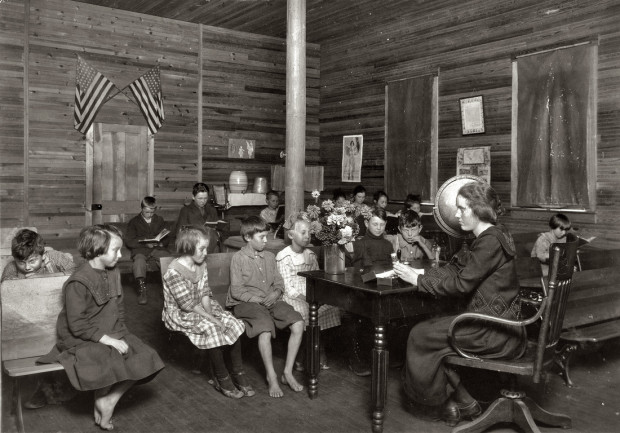The rise of public education and why we’re losing it today
 |
| Public education has developed since the days of the one-room schoolhouse. |
In January 2002, President George W. Bush signed No Child Left Behind. NCLB requires states to develop assessments (standardized testing) to measure skills in order to receive federal funding.
No Child Left Behind began the hysteria of “high stakes testing.” The result meant the private sector could access federal funds which were previously unavailable to them. Pearson publishing and McGraw Hill made record profits in the years following NCLB as a result of the sale of standardized tests, new curricula and homeschooling options aimed at passing the new state tests.
Since January of this year, U.S. senators have been debating the options in a bill to revise No Child Left Behind. Congress has been unable to compromise on what needs to change. Some senators like Republican Lamar Alexanderpropose more leeway on testing. Democrat Patty Murray stresses the need for annual assessments in order to keep low- performing students from “falling through the cracks.” Both the Senate and the House anticipate having bills on the floor in the coming weeks.
All of this begs the question, “why is all this happening?” Why the constant efforts to restructure and undercut public education?
Every few years, there is a new “reform” craze that promises to turn around “low-performing schools” but never a reflection on why the last one failed. Why are so many politicians on both sides of the aisle quick to come together to attack teachers and undermine public education?
What will it really take to close the achievement gap?
The organization of the public school system, and teachers’ rights in particular, has become a convenient scapegoat for the economic problems of capitalism: inequality, stagnant low wages, unemployment, declining global “competitiveness,” and so on. If politicians want better schools and schooling, they could show that by providing the resources necessary to improve them. If they want to motivate our students to learn, they would launch massive jobs programs and infrastructure projects to serve and upgrade oppressed communities. They would make a job at a living wage a basic right, along with access to free higher education. They would end the school-to-prison pipeline that criminalizes youth.
In other words, they would make massive investments to drastically The rise of public education and why we're losing it today - Liberation News:
Tell Congress: Vote NO on H.R. 5 – The Student Success Act


